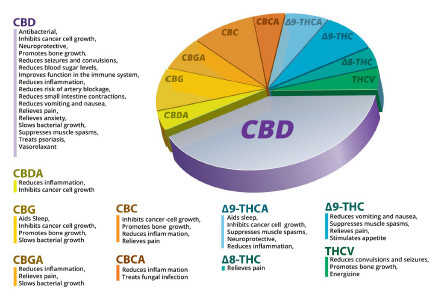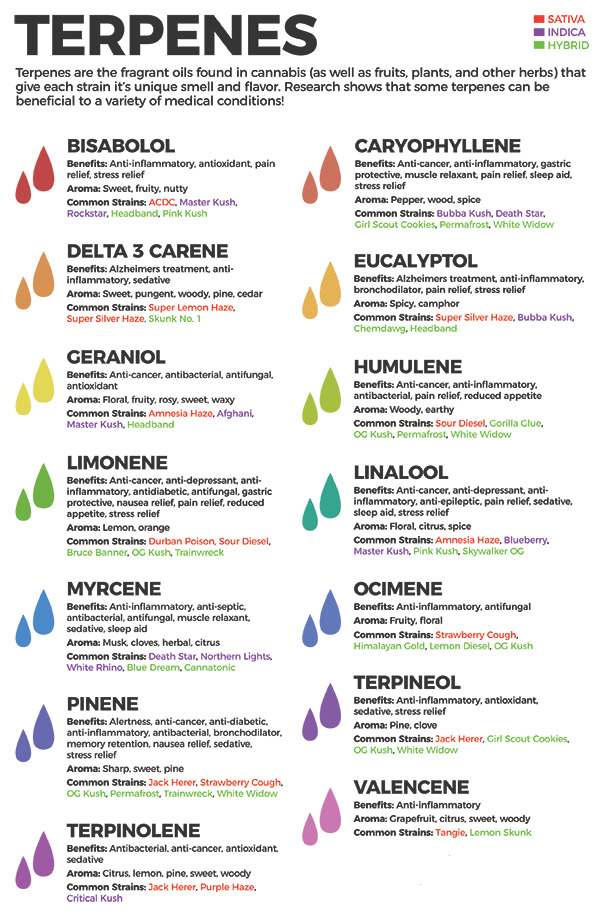What is cannabis?
Cannabis sativa is a plant used for fuel, food, pharmacy, fiber and building. It is also called marijuana, pot, and other names.
Cannabis sativa is a plant used for fuel, food, pharmacy, fiber and building. It is also called marijuana, pot, and other names.

Cannabinoids are the active compounds found in the cannabis plant. Cannabinoids are the chemicals which give the cannabis plant its medical and recreational properties. Cannabinoids like THC and CBD interact with different receptors in the body to produce a wide range of effects.

Terpenes are fragrant oils that give cannabis its aromatic diversity. These oils are secreted in the flower’s sticky resin glands, the same ones that produce THC, CBD, and other cannabinoids. Terpenes are not unique to cannabis; they can be found in many other herbs, fruits, and plants as well.

In Michigan, CBD only cannabis and products are available over the counter and online. THC containing cannabis and products are available recreationally for adults over 21 years of age and is also available medically to those with qualifying health conditions (see below). You can grow your own cannabis, appoint a cannabis caregiver, or your can buy cannabis in a dispensary.
Knowing the proper cannabis dose is essential. There has never been a reported case of a death from too much cannabis, so there is no true “overdose”. You can take too high of a dose and have a very uncomfortable experience. Fortunately, these symptoms are all self-limiting, and most people return to their normal selves within 12 to 24 hours.
Symptoms of cannabis overdose:
Extreme overdoses can lead to hallucination or acute psychosis but has never led to death.
What to do if you feel too high from cannabis:
Do your homework – Cannabis can ease a variety of ailments, and different strains do different things. Unfortunately, most medical schools don’t educate doctors about the science of the endocannabinoid system, and instead teach that cannabis is a drug of abuse. That means many doctors don’t know the conditions that cannabis can help, nor the various ways it can be consumed – so you’ll need to have some of that basic knowledge yourself.
Be Honest – Your communication with your doctor is confidential, so if you’re already consuming cannabis, you should feel comfortable saying so (and if your doctor’s worried they’ll get in trouble for talking about it with you, they’re legally protected, too – the Supreme Court says so).
Explain what you’re using – or want to use – and what you’re hoping the outcome will be. This is where the homework you’ve already done will come in handy. While they may not initially know anything about using cannabis medicinally, they can (and often will) do their own research.
Be aware that you may be the person who educates your doctor or changes his or her mind about cannabis, opening the door for more treatment options for your doctor and other patients.
Know When to Walk Away – Let’s say you’ve done everything right – you’ve read, you’ve researched, you know the pros and cons, and you’ve had an honest conversation with your doctor. Even still, they’re resistant to medical cannabis. There could be a lot of personal and professional reasons for that, and they should be respected. But just because it’s the end of the conversation with that doctor doesn’t mean it’s the end of the conversation for you. It does, however, mean you may need to consider finding a doctor who’s more open to making medical cannabis part of your overall treatment.
Application and Instruction info can be found here